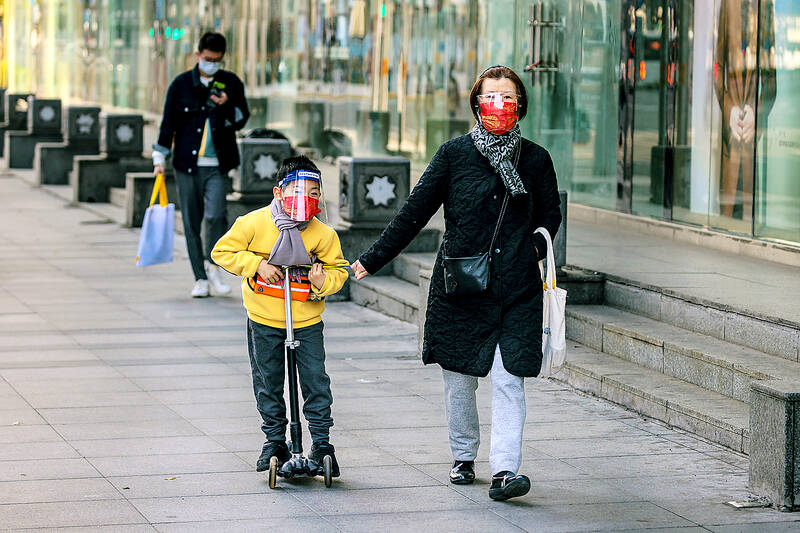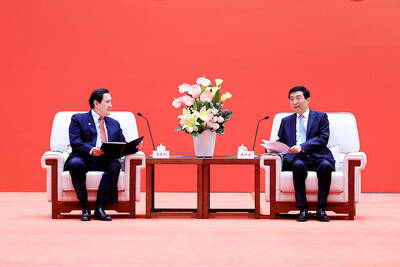The mental health impact of the pandemic was so severe that it prompted a “second midlife crisis” for the over-50s, with women worst affected.
A study has found that just before the second national lockdown began, those born in Britain in 1958 and 1970 were experiencing higher levels of psychological distress, on average, than they had ever experienced in adulthood before, surpassing previous peaks in their early 40s.
Data collected over four decades from more than 16,000 British-born adults, which was analyzed by academics from University College London and King’s College London, also found that those born in 1946 had similar levels of psychological distress to their previous midlife peak in their early 50s.

Graphic: TT
This peak of anxiety during the first year of the pandemic was higher for women than men across all age groups, widening the already substantial gender inequalities in mental health that existed before the pandemic.
“Most of the studies we analyzed propose that this is due to a totally different share of the domestic and caring responsibilities during lockdown,” said Dr Dario Moreno-Agostino, lead author of the report.
“An increase in gender-based violence and abuse, as well as additional financial constraints, are also suggested because there’s evidence showing that women were in more precarious situations than men: for instance, from the work point of view, more care workers — typically women — were exposed to more difficulties than other professions,” he added.

Photo: EPA-EFE
This unforeseen second midlife mental health crisis may accelerate and exacerbate the onset and occurrence of chronic mental health and health difficulties, increasing pressures on the NHS, the study suggests.
“There is the question of resilience, but we know that anxiety and depression are the top leading causes of disease worldwide,” said Moreno-Agostino. “Those mental health problems are closely linked to numerous physical health problems — right up to and including increased morbidity.”
He added: “The fact that we are observing an unexpected new peak of the very mental health problems that can lead to these long-term trajectories is deeply concerning.”
The study contradicts a recent study by McGill University researchers in Canada, which found COVID-19 may not have taken as great a toll on the mental health of most people as earlier research indicated.
That research, based on a review of 137 studies from around the world, said some of the public narrative around the mental health impacts of COVID-19 were based on “poor-quality studies and anecdotes,” which became “self-fulfilling prophecies,” adding that there was a need for more “rigorous science.”
Along with other experts, Moreno-Agostino disputed these findings. He warned that McGill’s “worldwide” approach could not accurately assess the impact of the pandemic on individual groups such as children, women and people with low incomes or pre-existing mental health problems in specific countries.
Even the McGill research, however, acknowledged that women had experienced worsening anxiety, depression or general mental health symptoms during the pandemic. That study also pointed to causes including juggling more family responsibilities, careers in health or social care, and domestic abuse.
Other robust studies have reached different conclusions to the McGill paper, suggesting that the mental health impact of the pandemic has been severe.
In 2021, researchers at the University of Queensland found that anxiety and depression around the world had increased dramatically in 2020. In April 2021, the Royal College of Psychiatrists observed a sharp rise in mental ill health. In February last year, NHS leaders warned of a “second pandemic” of depression, anxiety, psychosis and eating disorders.
But Prof Peter Tyrer, emeritus professor in community psychiatry at Imperial College London, stressed that the McGill work was “of good quality and reflects much of what we now know.”
He agreed with the researchers’ conclusion that the pandemic had a similar positive effect on resilience to wars because “social cohesion, despite the handicaps of lockdown and social distancing, improves when there is a common enemy.”

The canonical shot of an East Asian city is a night skyline studded with towering apartment and office buildings, bright with neon and plastic signage, a landscape of energy and modernity. Another classic image is the same city seen from above, in which identical apartment towers march across the city, spilling out over nearby geography, like stylized soldiers colonizing new territory in a board game. Densely populated dynamic conurbations of money, technological innovation and convenience, it is hard to see the cities of East Asia as what they truly are: necropolises. Why is this? The East Asian development model, with

Desperate dads meet in car parks to exchange packets; exhausted parents slip it into their kids’ drinks; families wait months for prescriptions buy it “off label.” But is it worth the risk? “The first time I gave him a gummy, I thought, ‘Oh my God, have I killed him?’ He just passed out in front of the TV. That never happens.” Jen remembers giving her son, David, six, melatonin to help him sleep. She got them from a friend, a pediatrician who gave them to her own child. “It was sort of hilarious. She had half a tub of gummies,

The wide-screen spectacle of Formula One gets a gleaming, rip-roaring workout in Joseph Kosinski’s F1, a fine-tuned machine of a movie that, in its most riveting racing scenes, approaches a kind of high-speed splendor. Kosinski, who last endeavored to put moviegoers in the seat of a fighter jet in Top Gun: Maverick, has moved to the open cockpits of Formula One with much the same affection, if not outright need, for speed. A lot of the same team is back. Jerry Bruckheimer produces. Ehren Kruger, a co-writer on Maverick, takes sole credit here. Hans Zimmer, a co-composer previously, supplies the thumping

There is an old British curse, “may you live in interesting times,” passed off as ancient Chinese wisdom to make it sound more exotic and profound. We are living in interesting times. From US President Donald Trump’s decision on American tariffs, to how the recalls will play out, to uncertainty about how events are evolving in China, we can do nothing more than wait with bated breath. At the cusp of potentially momentous change, it is a good time to take stock of the current state of Taiwan’s political parties. As things stand, all three major parties are struggling. For our examination of the